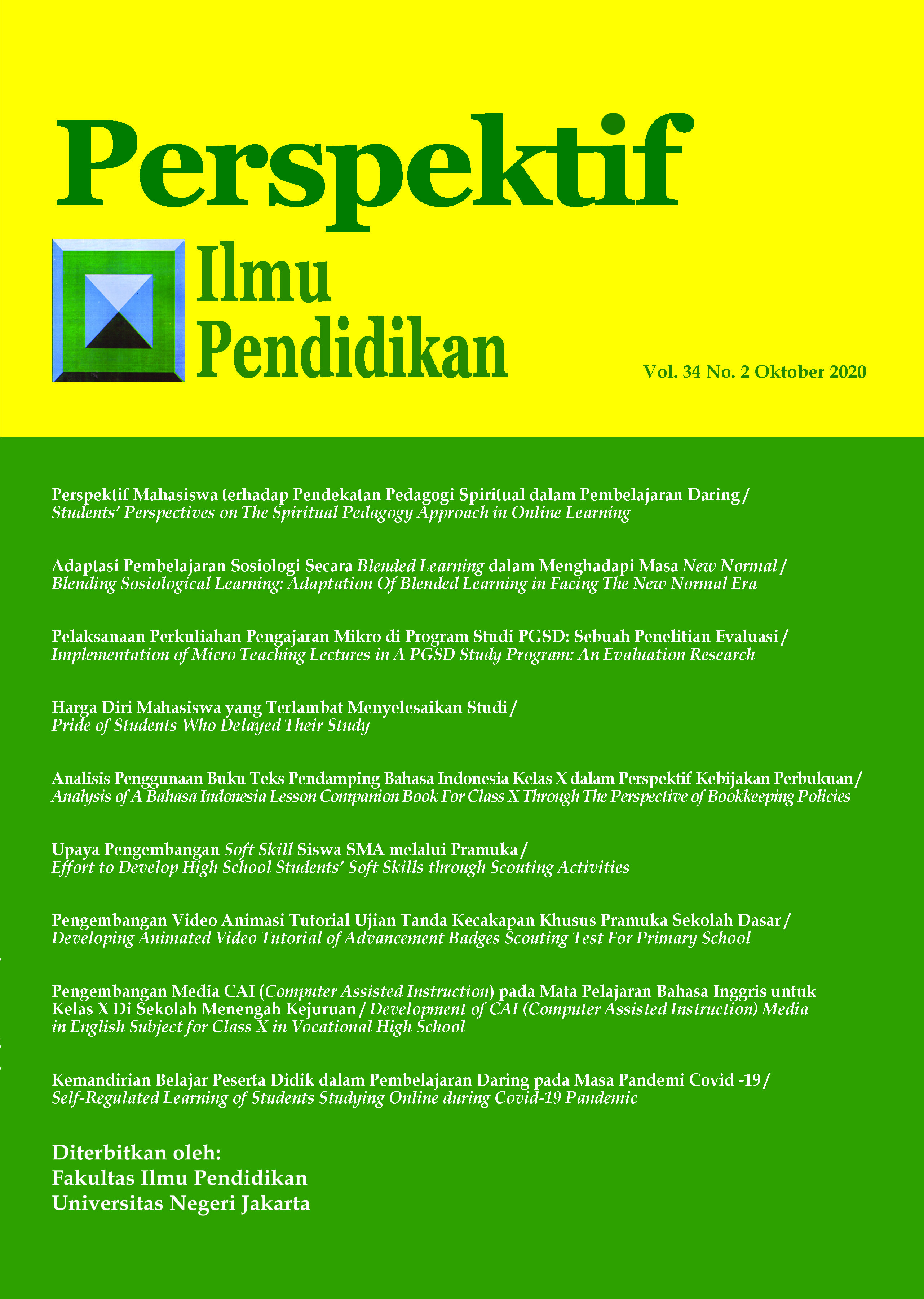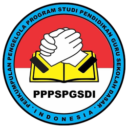PELAKSANAAN PERKULIAHAN PENGAJARAN MIKRO DI PROGRAM STUDI PGSD: SEBUAH PENELITIAN EVALUASI
IMPLEMENTATION OF MICRO TEACHING LECTURES IN A PGSD STUDY PROGRAM: AN EVALUATION RESEARCH
DOI:
https://doi.org/10.21009/PIP.342.3Keywords:
evaluasi, pelaksanaan perkuliahan, pengajaran mikroAbstract
Penelitian ini bertujuan untuk mengevaluasi pelaksanaan perkuliahan pengajaran mikro di sebuah program studi PGSD di Nusa Tenggara. Penelitian ini adalah penelitian evaluasi program berdasarkan model Robert E. Stake terhadap tiga kelas pengajaran mikro yang dianalisis secara kualitatif. Teknik pengumpulan data yang digunakan adalah observasi, dokumentasi, dan wawancara. Hasil penelitian ini menunjukkan bahwa pengajaran mikro di program studi PGSD yang menjadi subyek penelitian adalah a) pada komponen antecedent; persiapan pembelajaran sudah dilaksanakan dengan cukup baik yaitu dosen menyusun silabus dan instrumen penilaian tetapi belum menyusun RPP/RPS, sarana prasarana pembelajaran tersedia cukup lengkap tetapi laboratorium pembelajaran belum sesuai standar ketersediaan laboratorium micro teaching yang benar; b) pada komponen transactions pelaksanaan pembelajaran belum dilengkapi modul, namun pembelajaran dilaksanakan cukup baik dengan strategi pembelajaran teori dan praktik, menggunakan metode ceramah, diskusi, penugasan dan pembelajaran daring; c) pada komponen outcomes, hasil belajar dari rata-rata nilai adalah 77,18 dan sudah memenuhi KKM.
This study aims to evaluate the implementation of micro teaching lectures in a PGSD study program in Nusa Tenggara. This research is a program evaluation study based on the Robert E. Stake model of three micro teaching classes which were analyzed qualitatively. The data collection techniques used were observation, documentation, and interviews. The results of this study indicate that the micro teaching in the PGSD study program which is the subject of research is a) on the antecedent component; learning preparation has been carried out quite well, namely lecturers compile syllabus and assessment instruments but have not compiled RPP/RPS, learning infrastructure is quite complete, but learning laboratories are not in accordance with the standards of the correct availability of micro teaching laboratories; b) in the transactions component, the implementation of learning is not equipped with modules, but learning is carried out quite well with theoretical and practical learning strategies, using lectures, discussions, assignments and online learning methods; c) in the outcomes component, the learning result from the average score is 77.18 and has met the KKM.
Downloads
Published
How to Cite
Issue
Section
License
Authors who publish with this Journal agree to the following terms:
- Author retain copyright and grant the journal right of first publication with the work simultaneously licensed under a creative commons attribution licensethat allow others to share the work within an acknowledgement of the work’s authorship and initial publication of this journal.
- Authors are able to enter into separate, additional contractual arrangementfor the non-exclusive distribution of the journal’s published version of the work (e.g. acknowledgement of its initial publication in this journal).
- Authors are permitted and encouraged to post their work online(e.g. in institutional repositories or on their websites) prior to and during the submission process, as it can lead to productive exchanges, as well as earlier and greater citation of published works.
-
Users/public use of this website will be licensed to CC BY-NC-SA Creative Commons Attribution-NonCommercial-ShareAlike 4.0 International License












